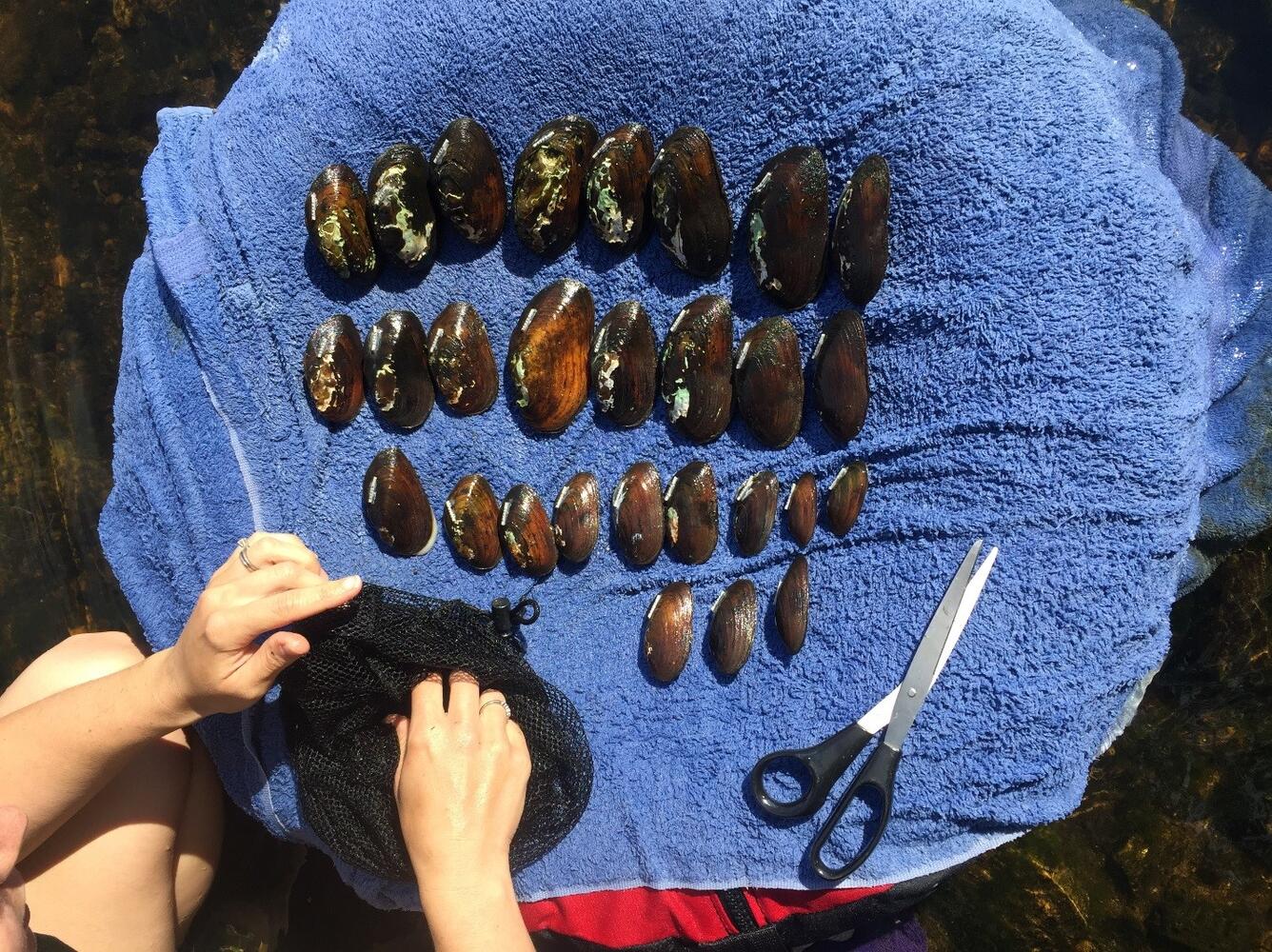Landscape genetics of Atlantic slope freshwater mussels
Landscape genetics of Atlantic slope freshwater mussels
North America contains the greatest diversity of freshwater mussels in the world; however, many of these species are rapidly declining. Management of mussels is difficult due to limited information available on their basic biology, effects of human activities, taxonomy, and genetic diversity. Freshwater mussels rely on a host fish for their larvae (glochidia) to metamorphose into juveniles. Therefore, freshwater mussel population structure is going to be linked to host fish movement, resulting in dramatic effects on gene flow and adaptability that are critical for mussel conservation. The eastern elliptio mussel (Elliptio complanata) is an abundant and widely distributed species in eastern North America that performs important functions in stream ecosystems. However, many populations are showing signs of decline with potentially dramatic effects on water quality. Researchers at the USGS Northern Appalachian Research Laboratory are investigating the range-wide within- and among-population genetic variation of this species, along with local adaptation to environmental conditions and host fish species among populations, to aid management and restoration of this species.


Landscape genetics of Atlantic slope freshwater mussels
North America contains the greatest diversity of freshwater mussels in the world; however, many of these species are rapidly declining. Management of mussels is difficult due to limited information available on their basic biology, effects of human activities, taxonomy, and genetic diversity. Freshwater mussels rely on a host fish for their larvae (glochidia) to metamorphose into juveniles. Therefore, freshwater mussel population structure is going to be linked to host fish movement, resulting in dramatic effects on gene flow and adaptability that are critical for mussel conservation. The eastern elliptio mussel (Elliptio complanata) is an abundant and widely distributed species in eastern North America that performs important functions in stream ecosystems. However, many populations are showing signs of decline with potentially dramatic effects on water quality. Researchers at the USGS Northern Appalachian Research Laboratory are investigating the range-wide within- and among-population genetic variation of this species, along with local adaptation to environmental conditions and host fish species among populations, to aid management and restoration of this species.



